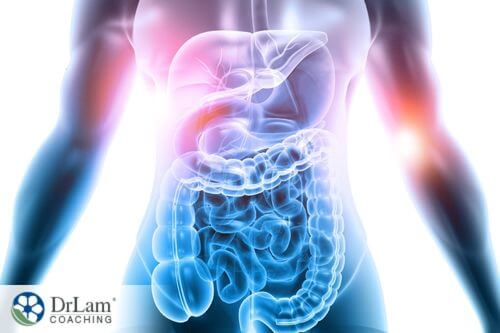 It’s estimated that at least six million Americans are living with a form of dementia. The occurrence of dementia is increasing and many studies are underway researching the causes and potential remedies. These remedies are not a silver bullet but aim to provide relief and potentially delay the progression. One remedy currently being studied is the use of antioxidants. Antioxidants are known to have multiple benefits. In this article, we will take a closer look at the relationship between antioxidants and dementia and how antioxidants could potentially help.
It’s estimated that at least six million Americans are living with a form of dementia. The occurrence of dementia is increasing and many studies are underway researching the causes and potential remedies. These remedies are not a silver bullet but aim to provide relief and potentially delay the progression. One remedy currently being studied is the use of antioxidants. Antioxidants are known to have multiple benefits. In this article, we will take a closer look at the relationship between antioxidants and dementia and how antioxidants could potentially help.
Dementia is an umbrella term for a group of symptoms that includes impairment to aspects of brain functioning such as memory loss and a reduction in thinking ability. These can result in a reduction in quality of life. Many specific conditions fall under this umbrella term such as:
There are many causes of dementia. In some cases, the cause is specific and includes vitamin deficiencies, stress, and head trauma. In some cases, the cause is unknown.
If the cause of the dementia is vitamin deficiency or head trauma, there is a chance that the dementia can be reversible. However, in cases such as Alzheimer's and Parkinson's, the damage is not reversible. Still, remedies can provide some relief from the symptoms and can potentially delay the course of the condition.
Whilst there are specific causes and non-specific causes for dementia, some risk factors are:
Antioxidants are a group of compounds and include:
During bodily processes and due to pollutants, stress, and illness, your body produces free radicals. These compounds can cause damage to your cells, increase inflammation, worsen symptoms from an illness, and can contribute to chronic conditions developing.
Antioxidants have many functions, but the most important function relative to dementia is that they can protect your cells from this damage and can potentially reverse it.
Dementia has many causes, and one factor that could be contributing to dementia is free radical damage within the brain. The brain is susceptible to damage from free radicals as it uses a lot of oxygen, has relatively low levels of antioxidants, and has a high level of unsaturated fatty acids.
If the levels of free radicals are high, it can cause damage to the proteins, DNA, cell membranes, and tissues, as well as cause inflammation within your body. This damage can contribute to aging and conditions associated with age such as Alzheimer’s and Parkinson’s.
There is substantial evidence that the damage by the free radicals to the brain is an early event that happens in individuals with dementia. Research shows that the brains of individuals with Alzheimer’s have higher levels of antioxidants. This could be due to the body trying to reduce the damage by sending the antioxidants to the brain.
There are many antioxidants and though not all of them have been researched in use for dementia, carotenoids are a class of antioxidants that has been involved in studies looking at the link between antioxidants and dementia.
 Carotenoids are a group of pigments that fall under the category of antioxidants. There are more than 750 different carotenoids. Some of the more common carotenoids you may have heard of are beta-carotene, lutein, and zeaxanthin.
Carotenoids are a group of pigments that fall under the category of antioxidants. There are more than 750 different carotenoids. Some of the more common carotenoids you may have heard of are beta-carotene, lutein, and zeaxanthin.
The different names of these carotenoids correspond to their pigment and are therefore found in foods with the corresponding color. Beta-carotene for example is a red-orange color and is found in carrots, sweet potatoes, and apricots.
Lutein and zeaxanthin are related to beta-carotene and have a yellowish pigment. These two pigments are usually found together. Some food sources rich in these carotenoids are eggs and corn, as well as green leafy vegetables such as lettuce, spinach, and kale.
B-cryptoxanthin is a lesser-known carotenoid but has important functions. It’s a precursor to vitamin A and is an orange color. Food sources of this pigment are oranges, papaya, peaches, and orange maize.
Carotenoids have multiple benefits that range from enhancing eyesight to reducing the risk of some cancers and improving antioxidant defense.
According to research the level of carotenoids - specifically lutein, zeaxanthin, and B-cryptoxanthin - in your body can reduce the risk of dementia development. This benefit, however, reduces if there is another risk factor such as smoking or an underlying medical condition at play.
This study is promising. However, it was done by measuring the levels of antioxidants at one point in time. These levels may change over a longer period. More research is needed to determine how beneficial the relationship is between carotenoid antioxidants and dementia.
Carotenoids were not the only group of antioxidants studied. Vitamin A, C, and E were also considered during the study to determine the relationship between antioxidants and dementia. When these vitamins were analyzed, they were found to not be associated with reducing the risk of developing dementia.
Vitamin A and E however, were found to counteract the effect of other antioxidants. This suggests that it is not necessarily a good idea to take large amounts of all antioxidants and there may be potential risks. More research is needed.
The findings of the research also suggested that the benefits of some antioxidants depend on the presence of other antioxidants.
Antioxidants are found in a variety of food sources, with different foods containing different antioxidants. This makes it important to have a diet that has a variety of different fruits, vegetables, and grains.
Some foods rich in antioxidants are:
Antioxidants are also available in supplement form, either in a complex with different antioxidants or by themselves. A common example is a vitamin C supplement.
Antioxidant supplements can be useful if you aren’t consuming enough antioxidants through food sources and would like to increase your levels. However, while supplements can be convenient, the FDA does not regulate supplements and high-quality ingredients are not a guarantee.
The relationship between antioxidants and dementia is not limited to the brain. It extends to the gut as well. Your gut is not only responsible for digesting and absorbing nutrients but also for regulating brain hormones. The gut-brain axis refers to a system within your body where the gut and brain communicate with each other by sending chemical signals back and forth. This axis helps to regulate your health.
 Your gut contains bacteria, both good and bad, and the balance in the gut should be more good bacteria than bad. Good bacteria help to release beneficial substances, and these substances help with the communication between the gut and the brain. If the good bacteria is low, the beneficial substances produced will be low and communication will be affected. Research has found that an imbalance in the gut could contribute to amyloid plaque in the brain, increasing the risk of dementia.
Your gut contains bacteria, both good and bad, and the balance in the gut should be more good bacteria than bad. Good bacteria help to release beneficial substances, and these substances help with the communication between the gut and the brain. If the good bacteria is low, the beneficial substances produced will be low and communication will be affected. Research has found that an imbalance in the gut could contribute to amyloid plaque in the brain, increasing the risk of dementia.
Antioxidants not only help to reduce free radical damage within the gut, but they also help to promote the growth of good bacteria in the gut. This helps to improve communication between the gut and brain, further reducing the risk of dementia.
Chronic stress on the body can cause Adrenal Fatigue Syndrome (AFS). Whilst your body can respond to acute stress for a brief time, if the stress continues, it can lead to a cluster of symptoms known as AFS. The NeuroEndoMetabolic (NEM) stress response system enables your body to respond to stress.
The Neuroaffect circuit is one of six circuits of related organ systems that make up the NEM system. The brain, autonomic nervous system, and gut microbiome make up this circuit and can help you cope with emotional and mental stress.
When this circuit becomes imbalanced, it causes disturbances within the brain, autonomic nervous system, and the gut microbiome. The disturbances in the gut microbiome can cause an imbalance in the good bacteria.
This imbalance can cause symptoms in the gut but also disrupts the communication between the brain and gut. This disruption can result in sleep disturbances, anxiety, and depression and can increase the risk of dementia developing.
Whilst antioxidants have many benefits, it is also important to understand the potential downsides of taking them. Studies have found that taking too many antioxidants or too high of doses over a long period can actually increase your risk of mortality. They may also interact with some medications. Also,the FDA does not regulate supplements, high-quality ingredients are not a guarantee.
If you have AFS, your body is very sensitive and can react to external products such as supplements.
This is why, if you are currently experiencing AFS or taking medication, chat with your healthcare provider before trying antioxidant supplements. They can help guide you in choosing the best supplements for your health needs. Getting the antioxidants you need through food sources is almost always safer than supplements.
Antioxidants have a wide range of benefits and could reduce the risk of dementia developing. Although the research between antioxidants and dementia is positive, the relationship between antioxidants and dementia needs more research. Getting more antioxidants through foods, such as carrots and sweet potatoes, is probably one of the safest ways to make use of this information.
If you would like to learn more about how antioxidants can benefit your health or if you are experiencing AFS, you can chat with our team at +1 (626) 571-1234 for a free phone consultation.
The study mentioned looked at both males and females. Females have a higher risk for developing dementia, but studies show that males have more damage from free radicals. With these findings, it’s safe to say that the link between antioxidants and dementia benefits both males and females.
